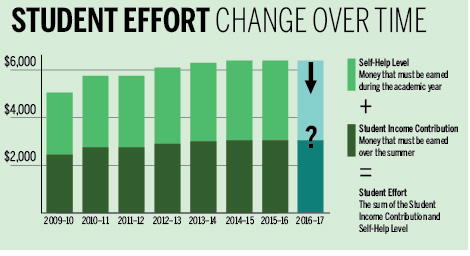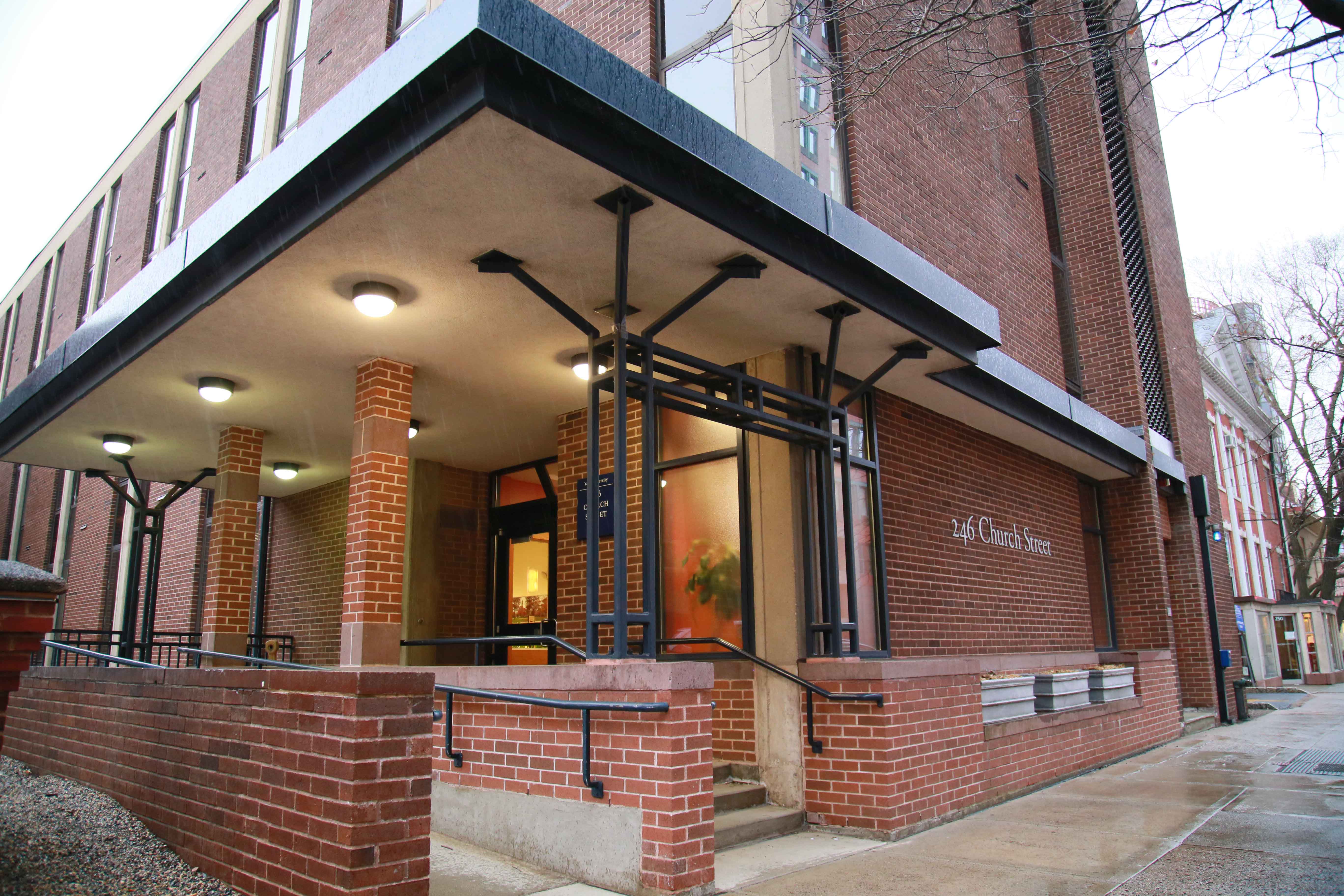
After years of mounting student pressure to reform Yale’s financial aid policy, University President Peter Salovey announced Tuesday that the student effort expectation will be reduced for current students for the next academic year.
In Salovey’s email, which was sent to members of the Yale community, Salovey highlighted a report produced last spring by the Yale College Council that included a host of recommendations for financial aid reform, including full elimination of the student effort portion of the financial aid award. The changes will affect the nearly 2,800 students who receive need-based financial aid and are held responsible for a yearly student effort financial aid expectation. The student effort is a combination of students’ summer earnings — called the “student income contribution” — and income from a term-time job that students are expected to put toward their term bill, which is called the “student self-help” amount. This academic year, the expected student effort is $4,475 for freshmen and $6,400 for sophomores, juniors and seniors. The self-help amount is currently set at $2,850 for freshmen and $3,350 for upperclassmen, while the student income contribution is $1,625 and $3,050 for freshmen and upperclassmen, respectively.
The student effort for upperclassmen has risen 26.7 percent since the 2009–10 academic year — from $5,050 to $6,400 — prompting protests and town-hall meetings with administrators last year over questions of fairness and feasibility for low-income students. Though Salovey announced an upcoming reduction, he did not specify its magnitude or whether the decrease would come from the student income contribution or the student self-help expectation.
“Financial aid policies for low-income students in Yale College, the subject of a spring 2015 report by the Yale College Council, will also see improvements beginning in the next academic year,” Salovey’s email stated. “Details will soon be announced, and will include a reduction in the student effort expectation for current students.”
Director of Financial Aid Caesar Storlazzi and Deputy Provost Lloyd Suttle declined to comment on the announcement, though Suttle noted that more details will be released at a later date.
Though many of the initiatives announced in Salovey’s email were issued in response to the campus climate and student demands over the past few weeks, YCC President Joe English ’17 said a group of students has been meeting with Student Financial Services and the Office of Undergraduate Admissions for the past year to discuss financial aid reforms for the class of 2020. He said he initially expected the financial aid office to announce the changes at the end of November or beginning of December, which is just before admissions decisions for early applicants are released. However, English also noted that recent campus events galvanized the administration to swifter action.
Dean of Undergraduate Admissions Jeremiah Quinlan said a group of administrators had been working this fall to examine possible changes to Yale’s financial aid policies and student expectation levels.
“We look forward to releasing more information shortly and continuing the conversation with Yale students,” Quinlan said.
Tyler Blackmon ’16, a columnist for the News who co-authored the YCC report and led the YCC task force on financial aid last year, said it will not matter for most students where the reduction comes from — either from the student income or self-help contributions — since most view the student effort as one combined cost.
While Blackmon cautioned against celebrating the changes before specific details are released, he said Salovey’s announcement is a victory for student activism on campus since it shows that the administration is listening to students. He added that issues of financial aid are closely related to recent student protests, which have primarily concerned racial discrimination on campus, since both have to do with administrative consideration of student input.
“We’ve been working on this issue for three years now, waiting for today,” Blackmon said. “Students have been fighting for a long time to have their voices heard. It’s part of a much larger conversation about student power and letting students have a voice in how things are run.”
Collin Taylor ’17, another co-author of the YCC report, praised the University’s efforts but noted that more changes must be implemented in order to make Yale’s financial aid policies as equitable as possible for all students. He cited the need for transparency in financial aid policy and Yale’s obligation to make sure all students can have the same college experience regardless of their abilities to pay.
Late Tuesday evening, roughly 40 students gathered in Bass Library for an event titled “Building the First-Generation Low-Income Student Movement at Yale,” which had been scheduled before Salovey’s announcement. Students interviewed afterward were generally pleased with the promised reduction, but they also commented on the confusing and hazy nature of the announcement.
“Honestly, it was too vague and didn’t provide enough specifics as to what was going to be done with regards to the student self-help,” Ryan Mera Evans ’17 said. “It was also couched in language that is provided by the financial aid office and is already confusing to me.”
Abdul Zachariah ’17 and Dianne Kaiyoorawongs ’17 also said the language in Salovey’s email was not clear, and they did not immediately understand the exact implications of his message. Students have complained in the past that the language used in financial aid communications — such as self-help, student income and student effort — is opaque and inaccessible. In response to these criticisms, the financial aid office has implemented several changes this year, including an updated website and a revised financial aid award letter for this year’s admitted students that will make its policies easier to understand, according to English.
Mera Evans said he was confused as to why the reduction was announced in the Tuesday email, which he interpreted as a response to the demands of Next Yale, a coalition of students that marched on Salovey’s house last week demanding specific measures the University should take to combat racial discrimination on campus. He pointed out that a reduction in the student effort was not one of the demands Next Yale made.
Kaiyoorawongs, like others, said that while she welcomes a reduction in the student effort, she wants the financial burden to be eliminated altogether, noting that it creates a class divide on campus that also intersects with race.
“Eliminating or significantly reducing the student effort could be the thing that most effectively changes my college experience for the better,” she said.
For the 2014–15 academic year, Yale provided $116 million in need-based financial aid.








